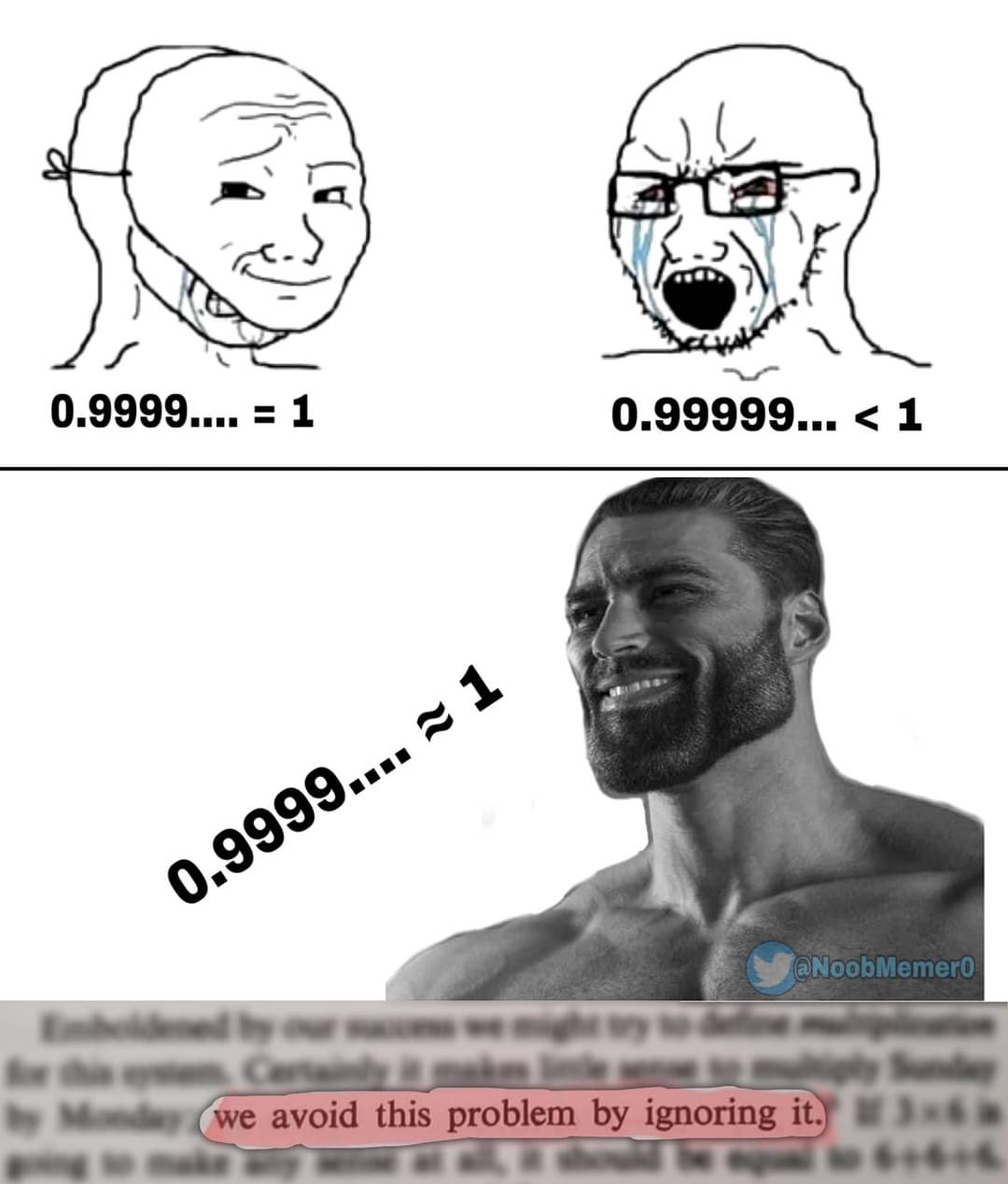this post was submitted on 27 Jun 2024
817 points (95.2% liked)
Science Memes
10988 readers
2396 users here now
Welcome to c/science_memes @ Mander.xyz!
A place for majestic STEMLORD peacocking, as well as memes about the realities of working in a lab.

Rules
- Don't throw mud. Behave like an intellectual and remember the human.
- Keep it rooted (on topic).
- No spam.
- Infographics welcome, get schooled.
This is a science community. We use the Dawkins definition of meme.
Research Committee
Other Mander Communities
Science and Research
Biology and Life Sciences
- [email protected]
- [email protected]
- [email protected]
- [email protected]
- [email protected]
- [email protected]
- [email protected]
- [email protected]
- [email protected]
- [email protected]
- [email protected]
- [email protected]
- [email protected]
- [email protected]
- [email protected]
- [email protected]
- [email protected]
- [email protected]
- [email protected]
- [email protected]
- [email protected]
- [email protected]
- [email protected]
- [email protected]
- !reptiles and [email protected]
Physical Sciences
- [email protected]
- [email protected]
- [email protected]
- [email protected]
- [email protected]
- [email protected]
- [email protected]
- [email protected]
- [email protected]
Humanities and Social Sciences
Practical and Applied Sciences
- !exercise-and [email protected]
- [email protected]
- !self [email protected]
- [email protected]
- [email protected]
- [email protected]
Memes
Miscellaneous
founded 2 years ago
MODERATORS
you are viewing a single comment's thread
view the rest of the comments
view the rest of the comments

And if you don't then you can no longer claim they are still equal.
For any
a,b,c, ifa = bandb = c, thena = c, right? The transitive property of equality.For any
a,b,x, ifa = b, thenx + a = x + b. The substitution property.By combining both of these properties, for any
a,b,x,y, ifa = bandy = b + x, it follows thatb + x = a + xandy = a + x.In our example,
aisx'(notice the') andbis0.999…(by definition).yis10x'andxis9. Let's fill in the values.If
x' = 0.9999…(true by definition) and10x = 0.999… + 9(true by algebraic manipulation), then0.999… + 9 = x' + 9and10x' = x' + 9.If you actually change any of the sides. Since, after substitution, the numeric value doesn't change (literally the definition of equality), I don't have to do anything – as I'm not rearranging. I'm merely presenting the same value in an equivalent manner. By contrast, when multiplying both sides by 10, since multiplication by 10 changes the concrete numeric value, I have to do it on both sides to maintain the equality relation (ditto for subtracting
x'). But substitution never changes a numeric value – only rearranges what we already know.(Edit)
Take the following simple system of equations.
How would you solve it? Here's how I would:
Here's how Microsoft Math Solver would do it.
No, you haven't shown that, because you haven't shown yet that 9x=9. Welcome to why this doesn't prove anything. You're presuming your result, then using it to "prove" your result.
What we know is that the right hand side is 10 times 0.9999..., so if you want to substitute x=0.99999... into the right hand side, then the right hand side becomes 10x (or 9x+x)... which only shows what we already know - 10x=10x. Welcome to the circularity of what you're trying to achieve. You can't use something you haven't yet proven, to prove something you haven't yet proven.